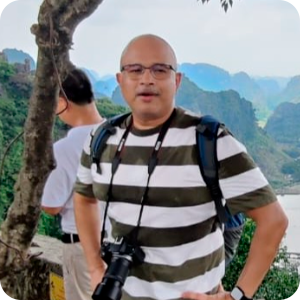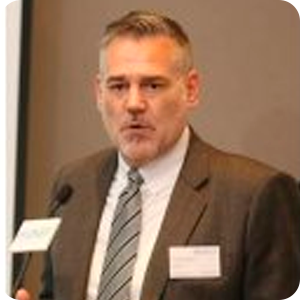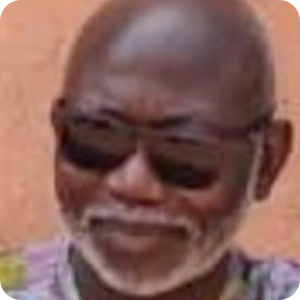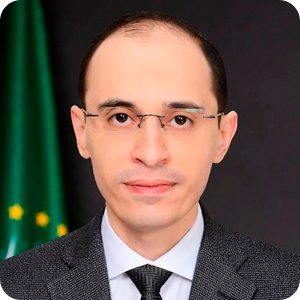After decades of channeling aid, the last couple of months have shown that without intense scrutiny and possibly restructuring, this sector and one of its main actors will face a great deal of uncertainty and question marks. With this year being the United Nations’ 80th anniversary, Secretary-General Antonio Guterres has launched the UN80 Initiative which aims to improve the efficiency, effectiveness, and transparency of the United Nations system. It applies to all UN agencies, funds, and programs in response to shrinking funding and increasing global challenges. Although this initiative has the goal of streamlining processes and not reducing funding, many critics have compared it to the establishment of the U.S. Department of Government Efficiency (DOGE), stating that both aim “to improve efficiency” within their systems. To learn more about what experts think of the UN80 initiative, check out this article.
Key Takeaways:
- As of 2025, the UN includes over 100 bodies and organizations. The UN Secretariat employs over 35,000 staff members across 467 duty stations worldwide.
- In 2025, the United Nations approved a regular budget of US$3.72 billion, an increase from US$3.59 billion in 2024.
- According to experts, cuts in U.S. funding which once accounted for 22% of the global budget for UN funds, programs and other entities, have significantly affected the global development ecosystem.
- Streamlining operations and optimizing resources, embracing digital transformation, exploring alternative funding sources, and improving accountability and transparency are several key strategies of UN80 to tackle shrinking funding while making progress towards the SDGs.
- Experts believe that to differentiate from initiatives like DOGE, it is essential to maintain a focus on equity, avoid overly bureaucratic processes, ensure a transparent and inclusive decision-making, and balance efficiency with humanity.
DevelopmentAid: With a shrinking global donor base and cuts in U.S. funding, how can the UN80 Initiative address financial challenges while still making progress towards the SDGs, particularly in areas such as poverty and climate action?

“Cuts in U.S. aid which once accounted for 22% of the global budget for UN funds, programs and other entities, have already started to bleed the global development ecosystem. The suggested reform targets efficiency, effectiveness, and transparency across all UN agencies, encouraging cost-effective measures, digital transformation, and alternative funding to advance the SDGs. The UN80 could tap into alternative revenue streams, e.g., public-private partnerships could leverage the US$1 trillion annual corporate ESG spending; tech or energy firms could fund climate action (SDG 13). Digital tools, such as the AI-driven poverty mapping used by the World Bank, could optimize interventions (SDG 1) and cut costs. Streamlining overlapping programs where over 30 UN agencies tackle climate and development could redirect funds to high-impact areas. With a narrowing donor base, innovative financing like green bonds (the EU had raised US$250 billion by 2024) or a global micro-donation platform (e.g., a “UN Patreon” targeting US$100 million) could fill gaps. Efficiency mustn’t override equity; the UN’s moral core hinges on both.”

“Trust in institutions is at an all-time low, making it vital for the UN80 Initiative to rebuild confidence in order to foster innovation and collaboration. To achieve this, the UN must create a culture of openness where staff feel empowered to candidly discuss inefficiencies and propose solutions without fear of reprisal. Establishing ‘safe spaces’ for honest dialogue – such as anonymous feedback mechanisms or town halls – can bring hidden issues to the surface and signal a commitment to self-improvement. Practical steps include piloting small-scale, high-impact projects like community-driven renewable energy or cash transfer programs for poverty alleviation. Demonstrating tangible results from these efforts will rebuild credibility with donors and the public, encouraging increased investment. Engaging local communities in co-designing solutions ensures accountability and fosters ownership, making interventions more sustainable. Radical transparency in funding is also essential. Publishing detailed breakdowns of expenditures and outcomes reassures stakeholders that resources are being used effectively. Combined with open discussions about what isn’t working, this approach positions the UN as a trustworthy steward of funds, paving the way for innovative partnerships. By rebuilding trust internally and externally, the UN80 Initiative can unlock creative solutions to financial challenges while advancing the SDGs.”

“With the current crisis triggered by the drastic cuts of President Donald Trump’s administration and the massive funding withdrawal by traditional donors, any attempt by the UN Secretary General to reform the system will be limited to the areas under his control. Subsequently, the UN80 Initiative can only focus on two basic kinds of reforms facing the organization: A reform of the organization’s structure and implementation arrangements. A structural reform will aim to streamline UN agencies and initiatives, consolidating these by sectoral mandates thus eliminating duplication and blurred lines during a program’s implementation. This would mean relocating HIV management to the WHO. Similarly, the UNSG Special Representative offices would be eliminated. Implementing programs: the management and backstopping arrangements need to be relocated from HQ to the region concerned. The network of regional and sub-regional offices and country offices can then be rationalized. Recipient countries should display ownership through financial and/or in-kind contribution to the UN agencies, particularly with national staff. An exit strategy should allow UN agencies whose mandate-specific objectives and indicators have been attained to pull out of the host country. The above measures and the adoption of modern technologies coupled with policies such as remote working arrangements would be helpful.”

“The UN80 Initiative, launched by UN Secretary-General, Antonio Guterres, aims to address financial challenges and enhance the United Nations’ relevance in the 21st century. To tackle shrinking funding while advancing the SDGs, particularly in critical areas like poverty alleviation and climate action, the initiative focuses on several key strategies:
- Streamlining operations and optimizing resources: By improving efficiency across UN agencies, funds, and programs, the initiative seeks to reduce redundancies and allocate resources more effectively. This ensures that limited funding is directed toward high-impact projects that directly contribute to the SDGs.
- Embracing digital transformation: Leveraging technology can reduce operational costs and improve service delivery. Digital tools can enhance data collection, monitoring, and evaluation, enabling more targeted and effective interventions in poverty reduction and climate action.
- Exploring alternative funding sources: The UN80 Initiative encourages UN agencies to diversify their funding streams. This includes partnerships with the private sector, innovative financing mechanisms, and increased collaboration with non-traditional donors. Such efforts can help to mitigate the impact of shrinking traditional donor bases and U.S. funding cuts.
- Enhancing accountability and transparency: By fostering greater accountability, the initiative aims to build trust among existing and potential donors, ensuring that funds are used effectively and transparently to achieve measurable outcomes.”
DevelopmentAid: Critics have compared the UN80 Initiative to the U.S. Department of Government Efficiency (DOGE) with both aiming to improve efficiency in their respective systems. How can the UN differentiate its reforms to ensure that the restructuring process does not become overly bureaucratic or risk losing sight of the human rights and equity-driven values?

“Critics liken UN80 to the DOGE with both seeking to trim the bloated systems. Yet, the UN risks over-bureaucratization or drifting from its human rights and equity roots. To stand apart, it should prioritize inclusivity and accountability. Citizen feedback via mobile platforms, as piloted by the UNDP, ensures reforms serve the vulnerable, not just programmatic or country-specific budgets. Transparent, real-time fund tracking using blockchain like Estonia’s public spending model could minimize redundancy, duplicity, and red tape, account for transparent stakeholder, vendor and consultancy management while maintaining trust. Unlike DOGE’s national scope, the UN’s 193-member complexity demands agility and broad buy-in to avoid gridlock.”

“To avoid mirroring DOGE, the UN80 Initiative must prioritize rebuilding trust to ensure reforms remain equitable and innovative. Trust is at an all-time low, so fostering psychological safety is vital. Staff need explicit “permission” to be honest about inefficiencies, which can be achieved through confidential feedback mechanisms or cross-departmental panels. Leadership must visibly act on this input, showing that candor drives change. Embedding human rights impact assessments into every reform stage ensures alignment with equity-driven values. Openly sharing findings reinforces transparency and demonstrates accountability. Storytelling can also humanize the UN’s mission by highlighting personal narratives – from staff overcoming systemic barriers to beneficiaries whose lives have been improved – reaffirming the importance of its work. Leadership must model humility by openly discussing missteps during the reform process, encouraging others to contribute honestly. Dismantling bureaucracy requires action, for example, streamlining rigid reporting requirements based on field feedback shows responsiveness. Practical measures like these, combined with a steadfast commitment to transparency and equity, will set the UN apart from DOGE. By empowering staff to innovate and by ensuring reforms reflect their core values, the UN80 Initiative can reaffirm its role as a champion of humanity’s shared future.”

“To differentiate itself from initiatives like the DOGE, the UN80 Initiative must remain firmly rooted in its human rights and equity-driven values. This can be achieved by:
- Maintaining a focus on equity: The UN must ensure that its reforms prioritize the needs of the most vulnerable populations, particularly in developing countries. This includes safeguarding programs that address inequality, gender equity, and social justice.
- Avoiding overly bureaucratic processes: While improving efficiency, the UN should adopt flexible and adaptive reform processes that avoid excessive red tape. Engaging stakeholders, including civil society and grassroots organizations, can help to keep the reforms grounded in real-world needs.
- Transparent and inclusive decision-making: The UN80 Initiative should involve member states, UN staff, and external partners in the reform process to ensure that diverse perspectives are considered. This inclusivity can help to prevent the reforms becoming insular or disconnected from the UN’s core mission.
- Balancing efficiency with humanity: The UN must strike a balance between cost-cutting measures and maintaining the human-centric approach that defines its work. This means ensuring that efficiency gains do not come at the expense of programs that protect human rights and promote sustainable development.
By focusing on these strategies, the UN80 Initiative can address the financial challenges while staying true to its mission of advancing global development, equity, and human rights.”
See also: Who will take the United States’ place on the apex of international aid? | Experts’ Opinions
In a fast-changing international development landscape, professionals need to stay ahead of emerging trends, funding shifts, and institutional reforms like the UN80 Initiative. Whether it is about career growth, job opportunities, or insights on policy changes, becoming an Individual Professional Member on the DevelopmentAid platform equips experts with the resources to thrive in this dynamic environment. Currently, members can access over 5,000 job openings in the international development sector, tenders and grants for individuals, webinars, salary trends, expert fees and much more. They can also connect directly with over 400,000 organizations or funding agencies and stay ahead of the competition by embracing new approaches.

